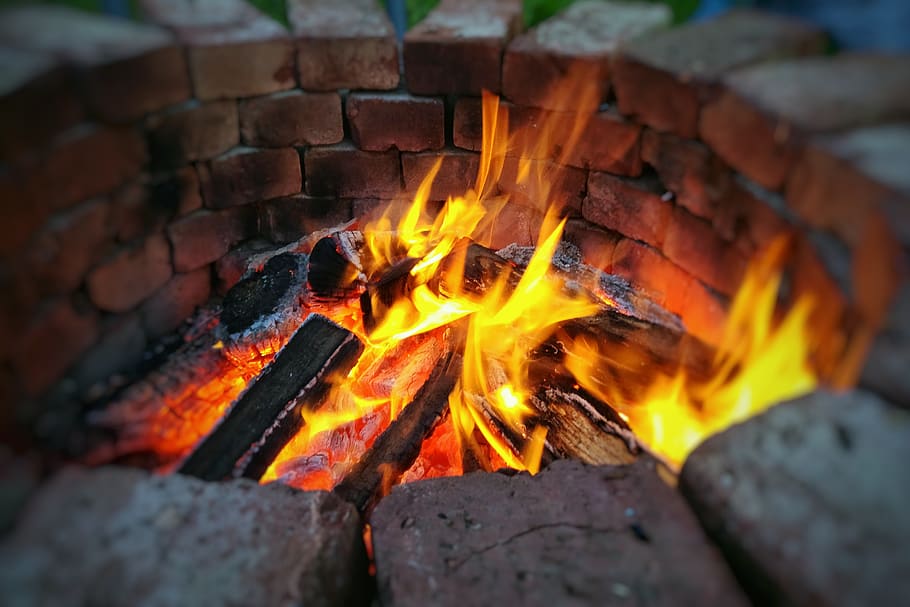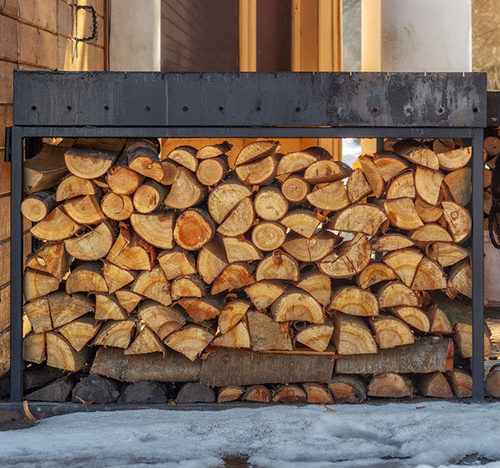A well-made fire pit that’s properly cared for should last for many years and give you lots of enjoyment throughout its life. You can help your fire pit last longer by following these simple tips.
Know what your fire pit is made of
Common materials used to build fire pits – whether custom-made or store-bought – include brick, copper, cast iron and stainless steel. All these materials are strong and safe when in good repair. Here are some details about different fire pit materials.
- Copper is more rust-resistant than other materials, but it doesn’t hold its color as well. Over time, copper tends to “turn,” producing a bluish-green color. Many people like the new shade, considering it a sign of quality wear. If you want copper to maintain its original color, use a copper polish.
- Rust is fairly common with cast iron fire pits, although regular cleaning and proper use can prevent much of this. In addition, cast iron is more susceptible to denting if it is dropped or hit.
- All metals can rust, so it never hurts to have them coated with fire-resistant paint, which decreases the harmful effects of intense heat and keeps rusting at a minimum.
- Brick fire pits are quite safe, providing fire-rated bricks were used to build it. You can further extend the life of a brick fire pit by adding a metal fire ring liner, which helps prevent cracked bricks.
More ways to get more life out of your fire pit
Burn dry wood: The toxic fumes produced by materials such as household trash, clothing, magazines, pressed board and plastics can have a harmful, deteriorating effect on the surfaces of any fire pit. Best to use only clean, dry firewood in your pit.
Matches and kindling: As with combustibles other than firewood, fluids used to start fires also can damage a fire pit. Never get a fire going with gasoline, lighter fluid, kerosene, charcoal starter or any other accelerant. Matches and kindling (and quality dry wood) are all you need to create a roaring fire.
Fires should extinguish on their own: Except in emergencies and unusual circumstances, you should allow your fires to die out naturally rather than dousing them with water. Water mixed with hot ash will cause the temperature to drop too quickly, which could damage your fire pit surface over time.
Remove ashes, clean off soot: The more regularly you clean ashes and soot out of your fire pit, the less likely the corrosive natures of these substances will harm your fire pit. When the fire is completely out, remove ashes with a shovel and place them into a fire-resistant container. Soot can be wiped off the fire pit’s surfaces with a damp rag and a mild, nonflammable cleanser.
Protect the pit when you aren’t using it: Fire pits should remain covered when not in use. Rain and snow eventually will cause rust and/or deterioration to surfaces, particularly cast iron and brick. Any type of cover, as long as it’s solid and secure, will do the job.
These tips will help you keep your fire pit looking good and holding up well season after season.
Questions? Ready for an Appointment? Contact Us Today!
We are South-Central New Hampshire’s #1 choice for chimney, fireplace & masonry services. Our team is National Chimney Sweep Guild (CCP/NCSG) certified and well-trained in current industry standards and procedures. We are ready to assist with inspections, repairs and installations for chimneys, fireplaces, wood and pellet stoves and more.
Contact Form
"*" indicates required fields




